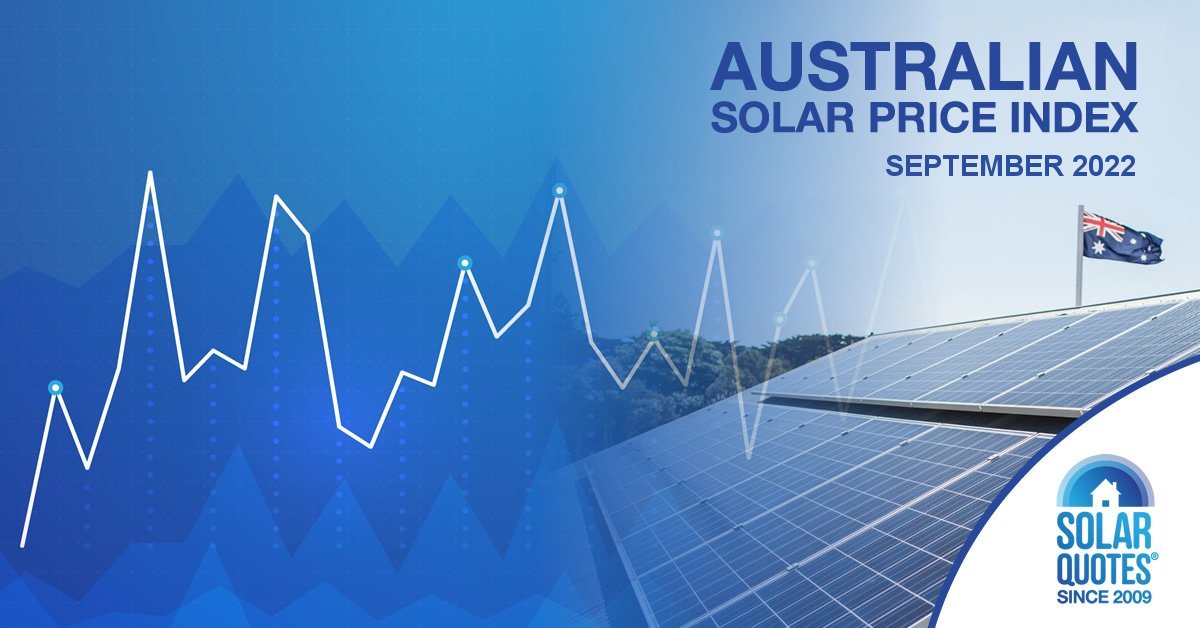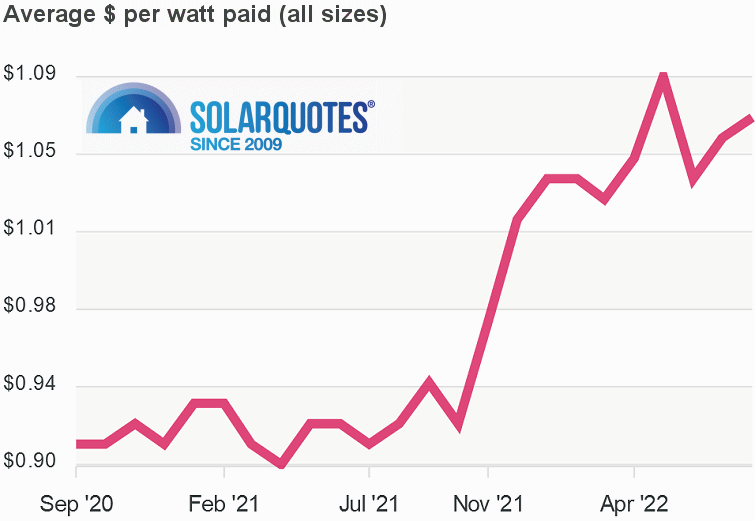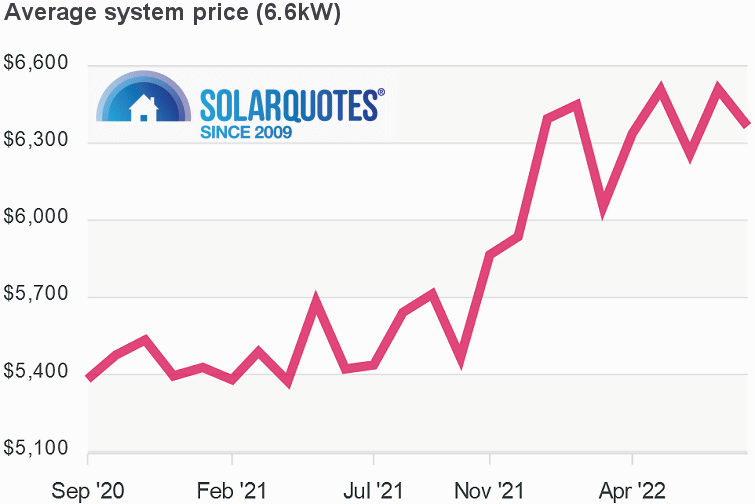The average cost of a solar power system installation in Australia crept up in August 2022. But some states fared better than others.
As was the case in July, just about every state saw system prices remain above the $1 per watt mark; fully installed and after any applicable solar rebates and subsidies. The exception was in Western Australia, where average cost per watt was 96c.
| State | Cost per watt (August 2021) |
Cost per watt (July 2022) |
Cost per watt (August 2022) |
| QLD | $0.90 | $1.04 | $1.03 |
| NSW | $1.01 | $1.12 | $1.11 |
| ACT | NA | $1.45 | $1.50 |
| VIC | $0.92 | $1.01 | $1.03 |
| TAS | $1.11 | NA | $1.27 |
| SA | $0.88 | $1.06 | $1.11 |
| WA | $0.77 | $0.95 | $0.96 |
| NT | NA | NA | NA |
| AU | $0.92 | $1.06 | $1.07 |
The figures in the table above are based on 466 solar installer review submissions received to date by SolarQuotes where prices of systems purchased in August were provided.
It’s important to note the averages cover everything from bargain basement cheap solar systems best avoided, to reasonably priced systems with solid components installed by professionals who care about the quality of their work, through to over-priced systems with varying component and installation quality.
If you’re interested in general pricing ranges currently for good quality systems, see SQ’s solar panel costs page.
Historical Cost Per Watt Nationally
The following graph indicates average cost-per-watt across all system sizes nationally going back to September 2020 .
6.6kW Solar System Prices – August 2022
The graph below shows average pricing nationally for 6.6kW systems in August – again, after all subsidies and including installation, and across the gamut of quality. August’s average at this point is $6,366; down slightly on July’s $6,510.
Average pricing on 6.6kW solar systems and other sizes can vary greatly from state to state. To see average pricing reported in your neck of the woods, and even reports on various system capacities based on specific components, give the SolarQuotes Australian Solar Price Index a whirl. The tool updates in real-time as new reviews are submitted and is what this report is based on.
Solar Rebate Reduction Ahead
Solar power system pricing continues to remain elevated and how long this will last is anyone’s guess. Given the number of curve balls thrown in the last few years, any predictions and forecasts regardless of who makes them are just guesses; but some more educated than others.
If you’re still on the fence regarding when to pull the trigger on a solar installation, something on the horizon that *will* have an impact on system pricing assuming nothing else changes in the meantime is a reduction in the national solar rebate. This shouldn’t be confused with feed-in tariffs. It often is and they are totally different beasts.
The rebate, which can knock thousands off the up-front cost of going solar, has reduced in January each year since 2017 as part of a planned phase-out.
January is still three months off, but the rebate level is based in part on *when a system is installed* rather than when you sign on the dotted line of a sales contract. The time from signing to the actual installation date can be some weeks, and good installers will soon start filling their books for pre-2023 installations. Once that happens, they’ll start quoting on systems taking into account the lower rebate from January.
While this doesn’t mean you should rush out and buy a solar power system right now (as rushed decisions can be poor decisions), now is the time to be researching installing solar with view to getting quotes reasonably soon.
Another important point to bear in mind – every day without solar panels on your rooftop is another day of mains-supplied electricity costs being higher than they would otherwise be. This will eat into whatever system pricing reduction savings that may (or may not) materialise.




 RSS - Posts
RSS - Posts



There is so much hype around installers and manufacturers that dissapear after a few years and then everything becomes a mess.
How do we avoid this.
Are batteries becoming a better deal or is there big risks there as well in terms of supply chain logistics and longevity.